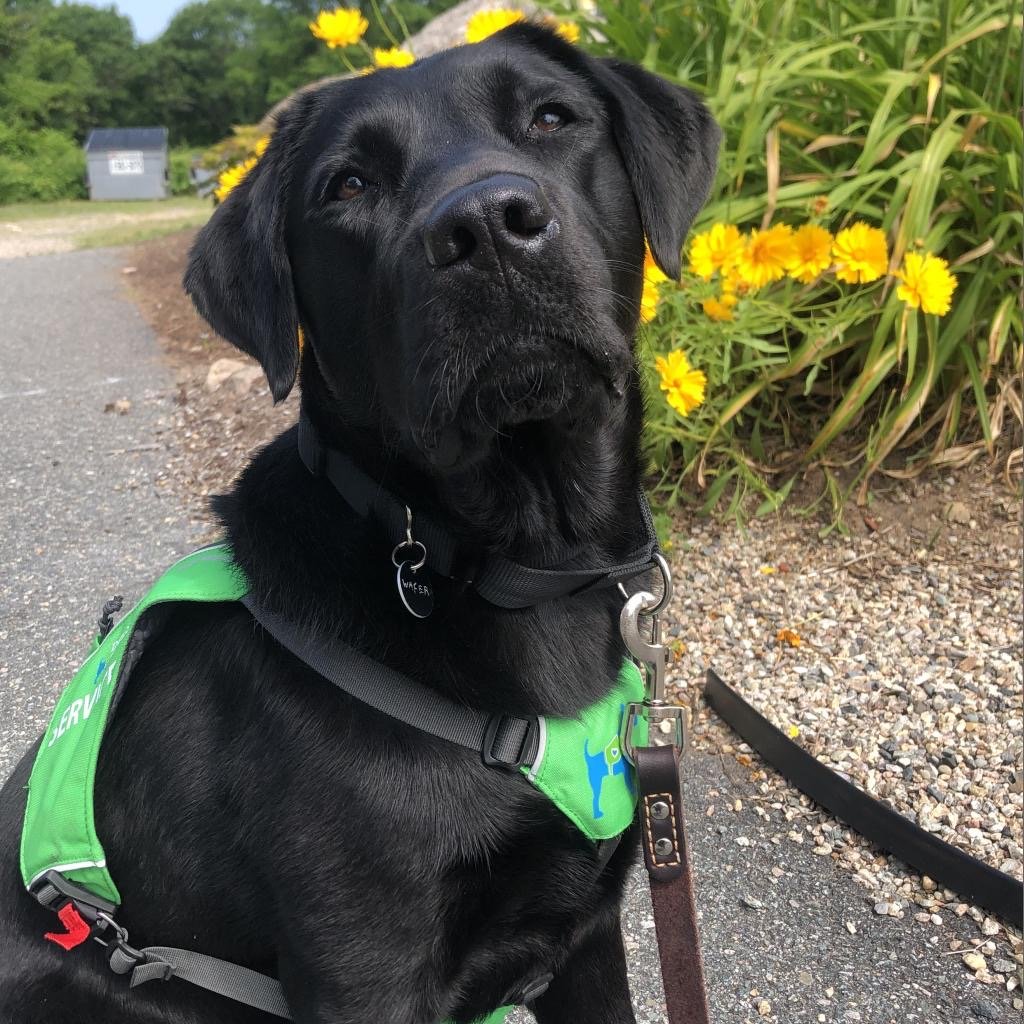How It Works
Every therapy or facility dog team begins with an evaluation (in-person $175 | virtual $160).
We’ll get to know your dog, your goals, and the environment where they’ll be working, whether that’s a classroom, clinic, or care setting. After your evaluation, you can choose the training format that suits you best:
Private coaching, where you’ll learn how to guide your dog through real-world practice with step-by-step instruction and ongoing feedback.
Done-for-you training, where Jacqueline focuses on skill-building during the week while you stay involved through regular handover sessions and video updates
What Your Dog Will Learn
Calm, confident behavior in busy or unpredictable environments
Friendly, polite greetings with strangers
Focus and relaxation around distractions
Task training for therapy or facility settings (e.g., client support behaviors)
Handler skills for managing visits and sessions smoothly
Therapy and Facility Dogs
Training with heart, purpose, and professionalism.
A well-trained therapy or facility dog can turn an ordinary day into something better - brightening classrooms, soothing anxious patients, and lifting spirits in workplaces and health care settings.
Whether you’re volunteering with your dog to visit hospitals or schools, or you’re a professional looking to integrate a facility dog into your practice, our programs are built around real-world success, kindness, and connection.
“Jacqueline is an awesome trainer! Well worth the time and money.”
- Laura D.
Frequently Asked Questions
-
Therapy dogs visit places like hospitals, schools, and nursing homes with their owners to bring comfort and connection as volunteers. Facility dogs work alongside professionals, such as therapists, teachers, or healthcare staff, to support clients during daily sessions or activities.
-
No. Unlike service dogs, therapy and facility dogs do not have full public access rights under the ADA in the U.S.. They may only enter public spaces where they are invited or at work with their handler.
-
If your dog enjoys people, adapts well to new environments, and remains calm around distractions, they may be a good candidate. We’ll evaluate suitability during your consultation.
-
It depends on your dog’s age, experience, and the skills required for your goals. We’ll provide a clear outline after your consultation.
-
Schedule your evaluation today and we’ll design a plan that fits your setting, your goals, and your dog’s personality


